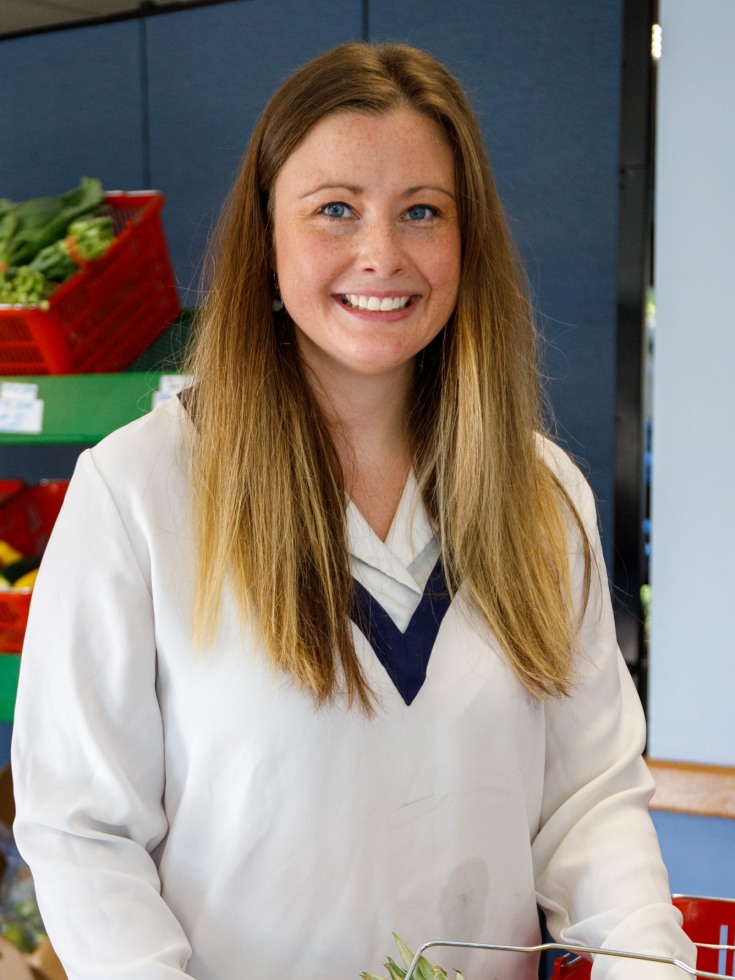Tell us a bit about your background.
I was a first-generation college student, so I worked almost fulltime during my undergrad to put myself through. Navigating college as a first-generation student, I switched my major so many times, but it was always in the sciences and I ended up majoring in nutrition. When I joined the Peace Corps after college as a community health worker in Costa Rica, I saw kids whose only meal was at school. So this issue of food access, of food insecurity has been a theme and motivating factor for me.
While serving in the Peace Corps, I learned to write grants, becoming the grant writing lead for the other Peace Corps volunteers. Next, I took on a role at the Harvard School of Public Health as a research assistant.
I’ve been with RIPHI (the Rhode Island Public Health Institute) for almost four years now doing policy work, research, grant writing, program management, and strategic and organizational planning. I am also a project director at the Brown School of Public Health for Professor Amy Nunn, who also serves as the executive director of the Rhode Island Public Health Institute. She has been a champion and advocate for me and my work, and I credit a lot of my success to her mentorship.
I originally started with the Rhode Island Public Health Institute to work on the retail SNAP (Supplemental Nutrition Assistance Program) incentive program. That role grew into the food access manager role where I run the food access division, which also includes Food on the Move, the RIPHI’s mobile produce market. Last January I took on the role of RIPHI deputy director.
What is the retail SNAP incentive program?
The retail SNAP incentive program incentivizes SNAP recipients to spend their SNAP dollars on produce by providing 50% off their fresh fruit and vegetable purchases, with the goal of improving healthy food access and nutrition among SNAP recipients.
A USDA-funded study, known as the Healthy Incentive Pilot, of 12,000 randomized people in Hamden County, Massachusetts that compared SNAP incentive groups and non-SNAP incentive groups, found that incentives increased fresh fruit and vegetable purchase and consumption by 30%.
We started the process three years ago with a variety of stakeholders at the table. We had planning meetings for close to a year with DHS, DOH, the Rhode Island Food Dealers Association, and other state and community agencies. We also talked to SNAP recipients; we were very intentional—we didn’t want to design a program for folks who didn’t also have a voice in that design. And I think that is incredibly important throughout public health and implementing policies and programs.
